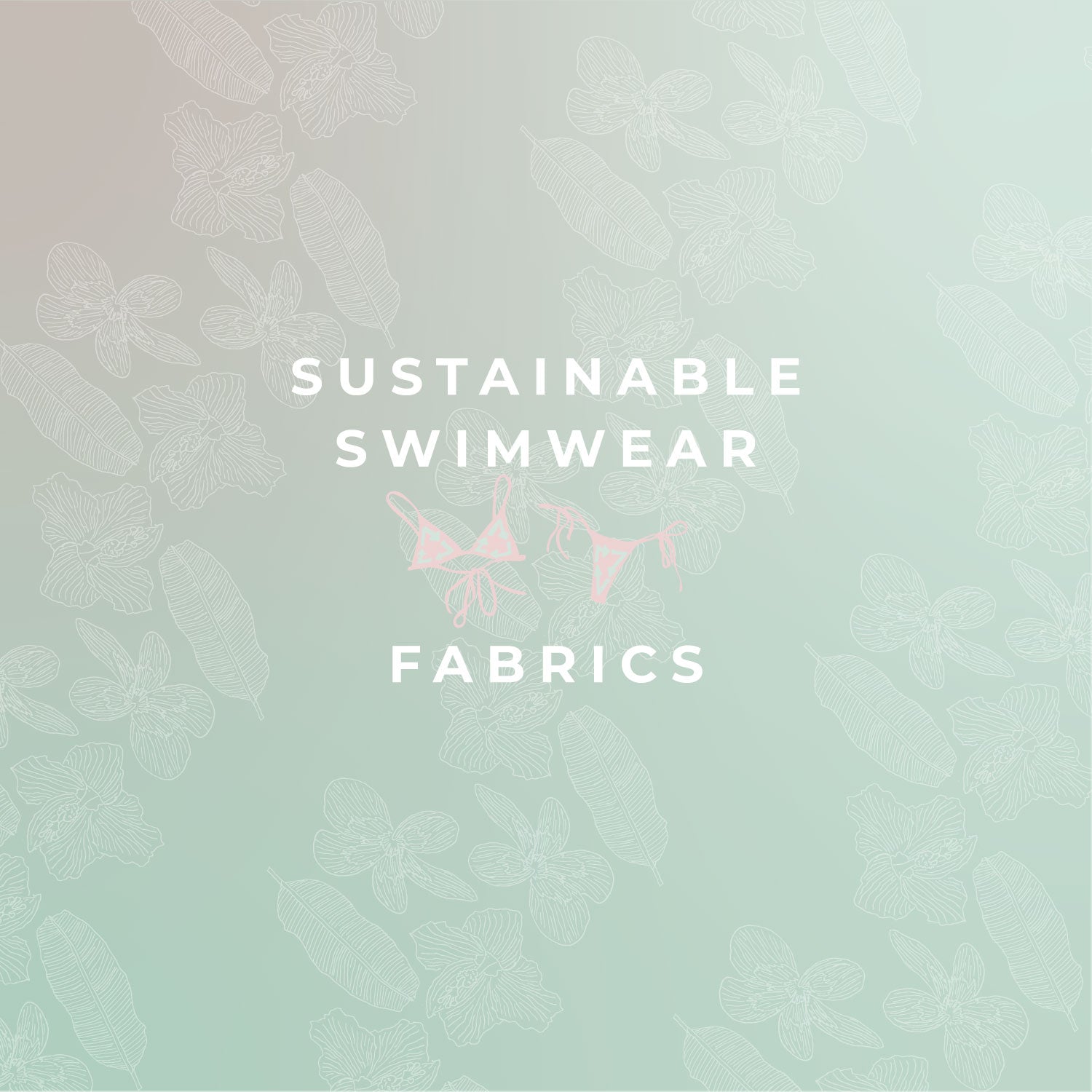
Complete List of all Sustainable Swimwear Fabrics Available
Introduction
It's 2023, I'm sure by this time you've heard through the coconut wireless about sustainable swimwear and fabrics. But, what are sustainable swimwear fabrics? What does sustainable swimwear mean? Thankfully, advances in the textiles industry have created new eco-friendly fabrics that help alleviate the most harmful effects of artificially created fabrics without compromising the quality and design. Swimwear brands now have an easy choice to choose to use fabrics that help reduce pollution and additional waste in the fashion industry. Although there is a lot more that a swimwear company can do to mitigate the effects of fast fashion than simply choosing a sustainable swimwear fabric, this article will cover the different sustainable fabrics available on the market today. With so many different kinds of materials used in swimsuits today it can be hard to know which fabrics are actually sustainable or eco-friendly. So we've compiled this list, so you can find all the information you need about each kind of fabric available:
Natural Fibers
As the name implies, natural fibers are...well... natural. They don't have to be artificially created to be used by the garment and swimwear industries. Thus, they don't create additional plastic waste that ends up in our oceans. However, simply because they are natural fibers does not mean that they are eco-friendly, the water needs of growing each type of fabric can actually be detrimental to the environment. Here's a list of natural fibers used in swimwear:
- Cotton
- Bamboo
- Hemp
- Organic cotton or bamboo rayon (rayon is an imitation of silk, but it's not as expensive and it will feel very similar to you)
Bamboo
Bamboo does not require pesticides to grow and can easily be grown organically. After all, it is one of the quickest growing plants in the world. It is also soft and friendly towards the skin. This, paired with its moisture and sweat-wicking properties along with antimicrobial properties would make this seem like an ideal choice for swimwear. However, bamboo must be processed by harmful chemicals that can be harmful to humans and the environment. Additionally, bamboo fabric tends to shrink faster than cotton and is prone to piling and wrinkles than other materials.
Hemp
Hemp is a sustainable, eco-friendly fiber. It's also one of the strongest natural fibers in the world. Hemp is resistant to UV rays and chlorine, which means that it won't fade or turn yellow with washing. Hemp is naturally antimicrobial as well, which means it can resist bacteria and mold growth even after repeated washings--no matter how many times you wash your hemp swimsuit!
Additionally, the water needs of hemp are significantly less than the water needed to grow the fibers from cotton. The only problem with hemp for swimwear is the lack of elasticity and the texture of it. Many people report that hemp makes them "feel itchy" especially after a day at the beach with salt and sand.
Upcycled Fibers
- Upcycled fibers can be made from recycled plastic bottles, fishing nets and other marine debris.
- These upcycled fabrics are often used in swimwear because they're durable and good for the environment.

REPREVE
Repreve is a sustainable fabric made from recycled fishing nets. It's also made from recycled polyester and has a soft feel to it. The fabric is resistant to wear, making it ideal for swimwear that needs to last through many seasons of use. It's for this reason that we choose to use Repreve on many of our 'kinis for Tai Swim.
Read more about Repreve here!
Vita
Carvico Vita is a recycled polyester made from fishing nets, making it a sustainable alternative to virgin polyester. It also has a higher tear strength than virgin polyester and can be dyed in different colors and patterns.

Carvico Vita is made by blending water with waste fibers from the production of other materials like cotton and rayon, which are then spun into yarns before being woven into fabric. The resulting material can be used for everything from swimsuits to clothing because it's so versatile--but its ability to stretch makes it perfect for swimwear because your clothes won't fall apart when wet!
Did we mention it's made in Italy? How could it not be fancy? We also choose to make much of Tai Swim using Carvico fabric because of its stretch qualities and its texture.

How to tell what your swimwear is made of?
The easiest way to tell what fabric that your swimwear uses is to check the tags when purchasing. Most swimwear made of recycled or sustainable fabrics will often carry a tag explaining the recycled fabric. However, many brands including Tai Swim have decided to not print extra tags since the tags create unnecessary waste. Thus, the most sure way to check if your swimwear is made of recycled or sustainable fabric is to check the heat transferred tag on the inside of the bikini. Most that are made of recycled fabrics should specify that they are made of "recycled polyester" or "recycled nylon."

A "sustainable" swim company should be transparent about the fabrics that they are using. If you're ever not sure, check their website to see if exactly what kind "eco" fabric they are using. Hopefully, the sustainable swimwear companies hold themselves to a high standard and are proud of the fabrics they are using. After all, why shouldn't they be. It's important that as consumers that we ask the right questions of the companies that we buy from.
Conclusion
You can also find a wide range of sustainable swimwear fabrics on the market. From eco-friendly options to other unique designs with unique qualities, we’re sure you’ll find something that works for you. Remember that the most sustainable type of swimwear is the ones that can be reused for years and years to come! At Tai Swim, we use timeless cuts and prints that should keep you looking great at the beach way past the planned obsolescence of the unsustainable swimwear industry.


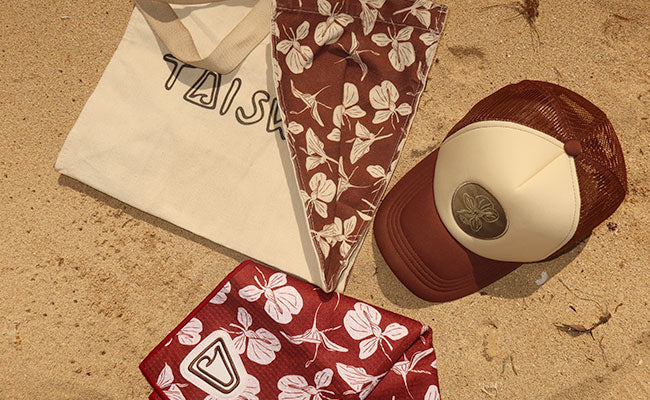
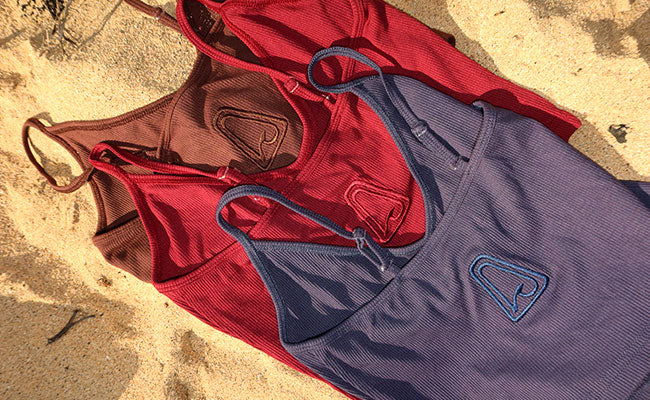
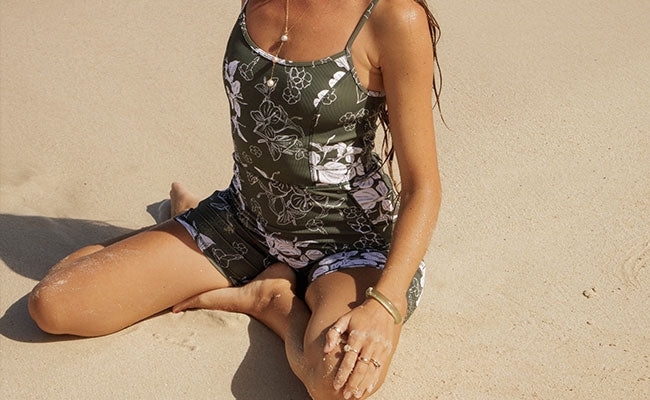

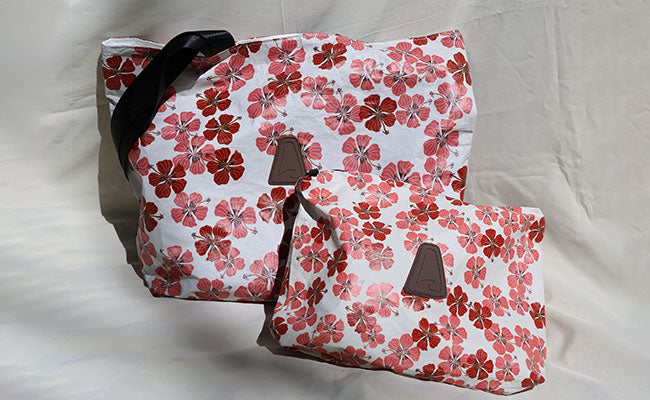
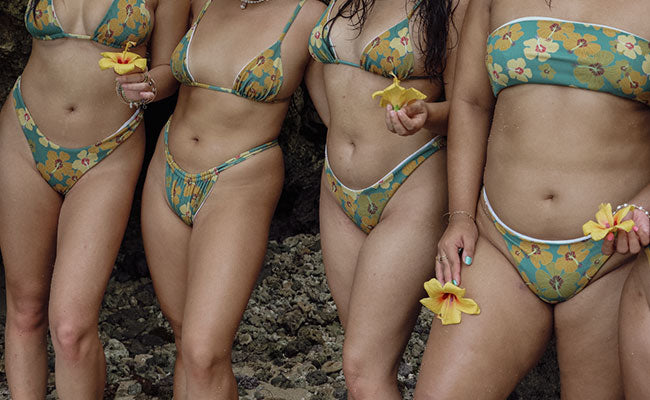

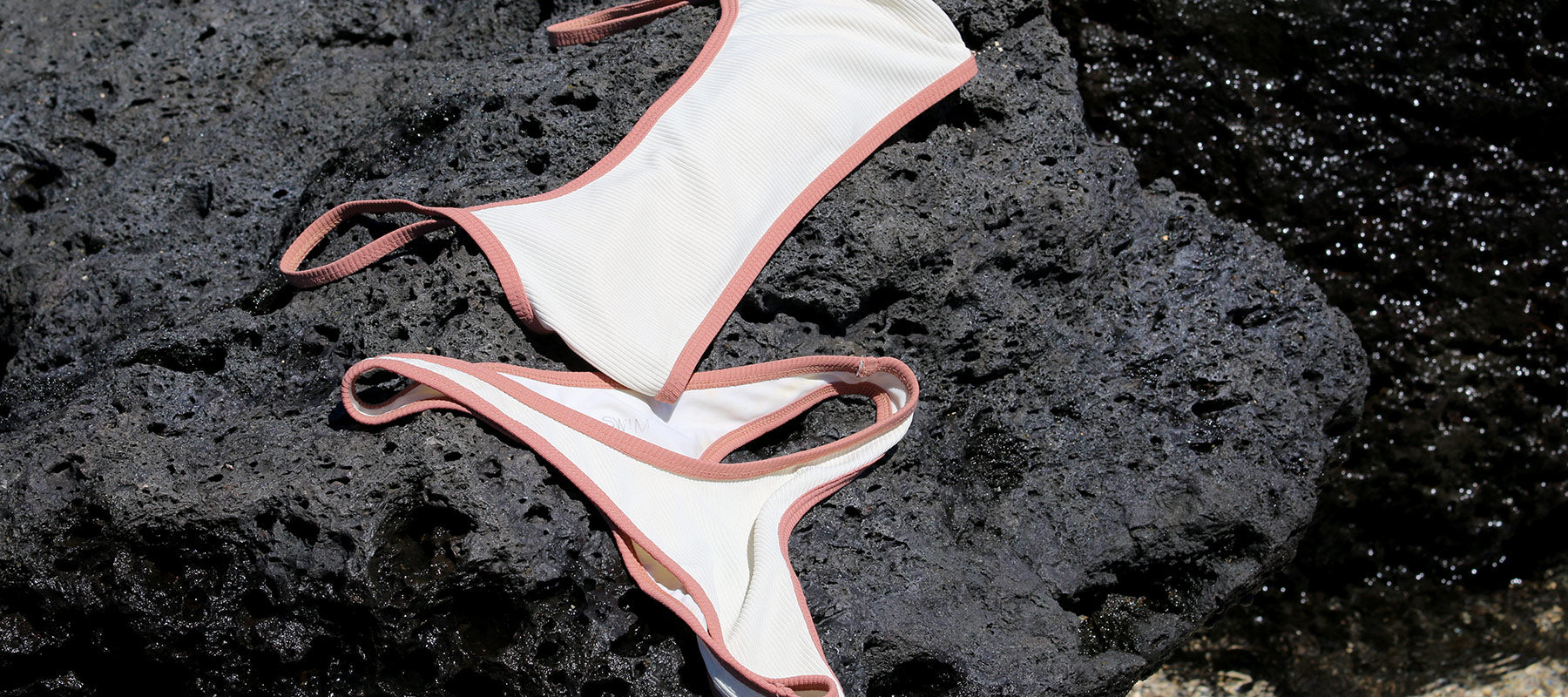
Leave a comment
This site is protected by hCaptcha and the hCaptcha Privacy Policy and Terms of Service apply.